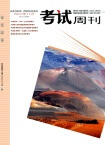On the Working Flow of TV News Trans
作者:孙名斐 字数:4205 点击:
Abstract: The past few decades have witnessed the intensified communication between China and the rest of the world. China is giving the world a global perspective to view its tremendous changes. English TV news,, with its audio and visual attributes, is becoming an important means to convey China’s view and a channel for the world to know more about China. This paper aims to explore the working flow of English TV news trans-editing in China.
Key words: English TV news; trans-editing; working flow
1 Introduction
It is universally acknowledged that globalization is a trend of today’s world, which belies Rudyard Kipling’s prediction that “East is East and West is West, and never the twain shall meet” With the fast development of mass communication technology, English TV news has been a fast and effective communication media, meeting China’s growing demand of external report and extensive international exchange. But seldom has the working flow of trans-editing been known by us, therefore, this paper is written with an aim to present the story behind English TV news.
2 A Typical Day in An English TV News Room
It’s 9 am. John,a TV news trans-editor, walks into the TV News Room in Xinhua News Agency Zhejiang Branch which is responsible for the external reporting of the local news in Zhejiang Province. It is a medium-sized news room accommodating five trans-editors. At any time of the day, it is a place of hustle and bustle. Now, the room is quiet as most correspondents and cameramen are out for news stories. It seems a relative “relaxing day”. But not until 12 noon when correspondents and cameramen get back with their stories does John’s workday officially start. Sometimes when John thinks it is really a relaxing day, then there must be emergency events to get him off the ground.
Unlike translators with print media, who, at most of the time, translate a source text into a target text, broadcast media has to take the images and sound-bite into consideration and ideally matched them with the story. In other words, they have to describe what is going on screen rather than just narrating the news story, which calls for text operations during trans-editing.
It is 1 pm. A correspondent finishes his Chinese news story and e-mails it to John. It is a piece of news with great timeliness and is about a football match in which a local football team beats a J-League Champion in a group round match in AFC Champion League. Time pressure is so enormous that every tick of the clock can bring the deadline closer. John could possibly translate every word from the source text into a target text which turns out to be his news report. As English TV news reports require a succinct and straight forward format and informative style, instead of doing the literal translation, he has to rewrite the story according to the source text and the camera-shots. After he finishes trans-editing, the story and the camera-shots will be sent to the head office of Xinhua News Agency in Beijing for final editing and videotaping.
(Figure 1 Workflow in English TV News Room)
Working staff in an English TV news room include correspondents, duty directors, news trans-editors and copy editors.
The fast distribution of information brings advances in the information and communication technology which narrows the “digital divide” and facilitates the global communication. This information age calls for more qualified Chinese trans-editors to join the news group for information distribution, shaping cultural identity and universal values.
Reference
Kipling, Rudyard. The Ballad of East and West [Z/OL]. (accessed 20/03/2011).
Retrived from: Kipling, Rudyard. The Ballad of East and West [Z/OL]. (accessed 20/03/2011).
Duty directors: Select out the writing-worthy news for external report and overseas audience by “A nose for news”, a jargon in journalism describing the sense of making decision on news worthiness.
Copy editor: Revise the news items with “eagle eyes” including spotting grammatical mistakes and rewording a passage so it sounds better for broadcasting but does not change the voice of the news.



